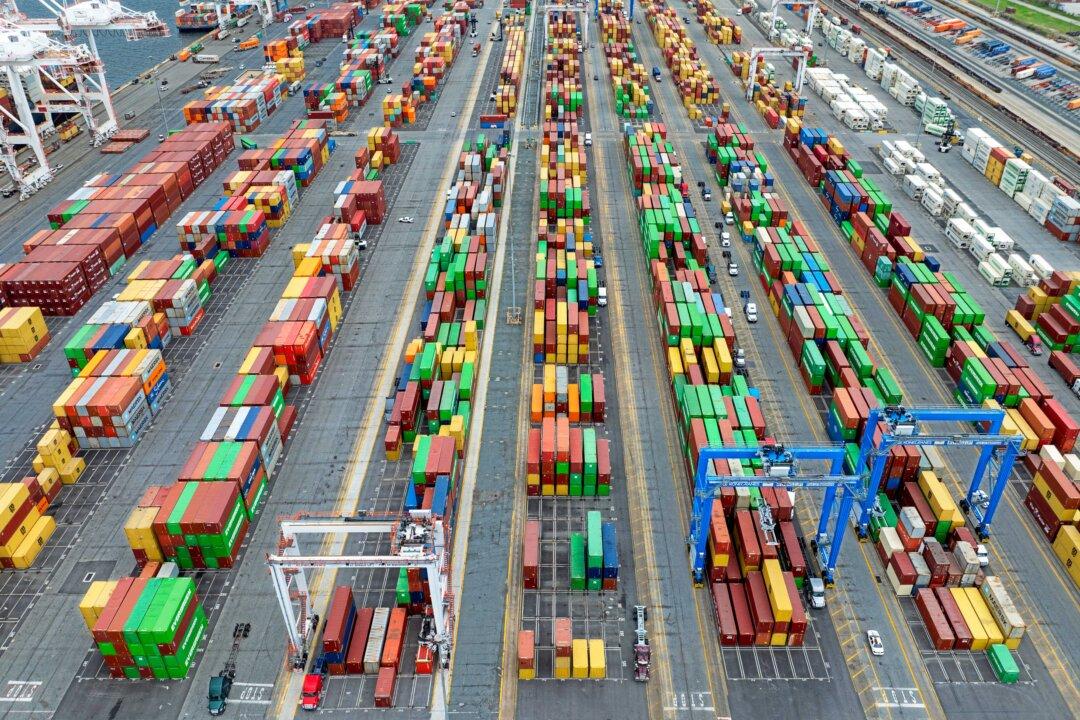
An aerial view of shipping containers stacked at the Port of Baltimore in Baltimore, Md., on April 10, 2025. Jim Watson/AFP via Getty Images
Shipping companies will have to pay a fee for every ton of greenhouse gases they make, according to the United Nations.
Countries at the U.N. shipping agency International Maritime Organization (IMO) voted for the rules on
April 11 at its London headquarters.





